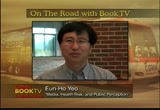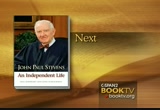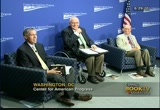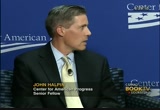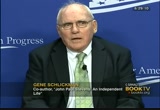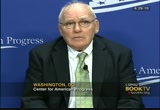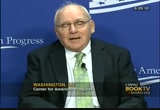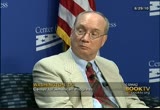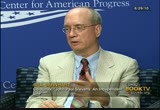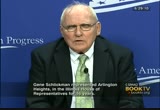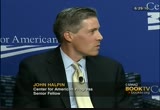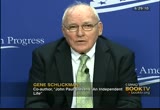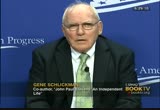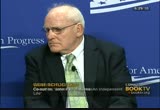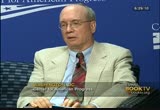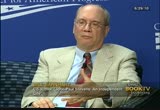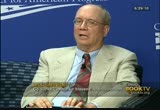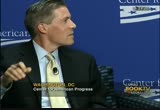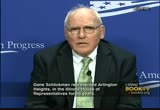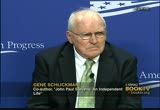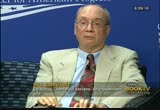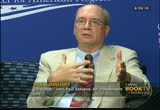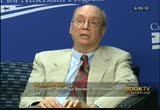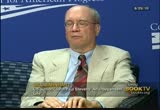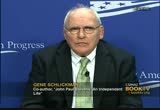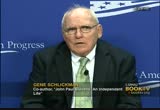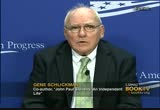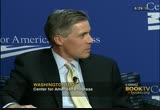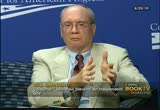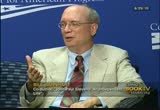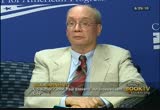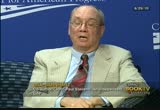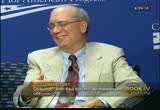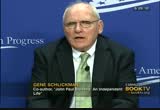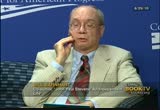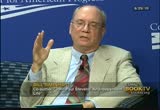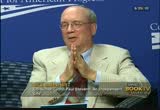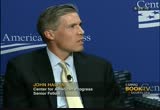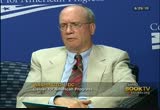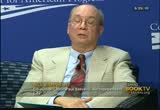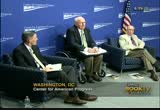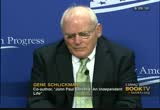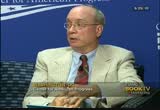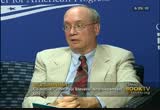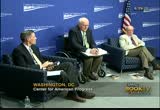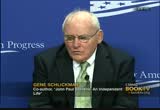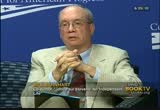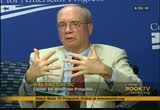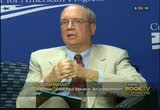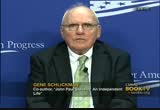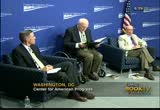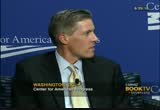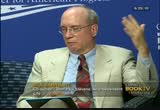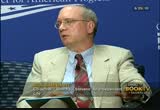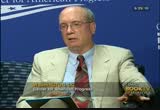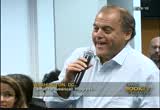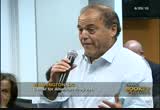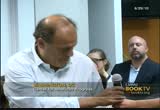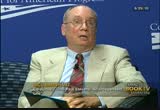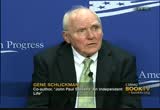tv Book TV CSPAN December 18, 2011 6:00pm-7:00pm EST
6:00 pm
different action blinds which are not -- guidelines which are not necessarily sign terrific including like you pray and waiting for the end of the world, okay? so these are called the psychosocial epidemics, right? so the facebook and twitter, all the social media has its own beneficial, i mean, potential benefits. but at the same time it can be, work as accelerating medium for this psychosocial epidemics. >> great. thank you so much for your time. >> this thank you very much. ..
6:01 pm
senior fellow and co-director of the progressive studies program for those of you who don't know what that excludes a new program we started a year ago the history of intellectual condition of progressivism and liberalism and a series of events like this, training programs, other things like that coming and we want to welcome you here tonight and especially one to thank c-span and booktv for joining us in the audience for listening in. we are very honored tonight to have bill barnhart and chemo brain schlickman who are the authors poor the only ones in existence naturally of john paul stevens called john paul stevens and independent life. i'm not sure if eight years ago you all considered he would be doing a book agent on the day that justice stevens retired, but it was quite timely and we
6:02 pm
welcome both of you here. bill is a 30 year veteran of "the chicago tribune" and has a background in financial reporting business worked and worked with pps nightly business report and gene's business backend is a retired lawyer and spent eight years in the general assembly. ties to illinois and as we will get into in the background, justice stevens chicago plays a prominent role in the development of the bald of the work and his jurisprudence over time. we are going to start off sort of broadly looking at the background of justice stevens and then move into the philosophy and some of the ideas about that and then talk specifically about some cases where we see some of this come out. let's talk brought the for both of you. you had written a book prior to this on the former illinois
6:03 pm
governor. what led both of you to decide to do a book on john paul stevens? >> bill and i spent time in the illinois legislature as a state representative, bill as a reporter for "the chicago tribune". ultimately or i should say subsequently and one day i was reading the tribune and saw a bylined the name was bill barnhart. i called bill and said thank got and you are alive. thank god you are employed. let's get together for lunch one day. he said fine. we did get together with lunch and shared with each other what we had been doing and i told bill that i had been working on a biography of although kerner, you may recall in addition to being governor bill moly had been appointed by lyndon johnson
6:04 pm
as chairman of the kerner commission studying rye it's in america's cities. he also had been appointed to the second circuit court of appeals were john paul stevens also served. but he then went to jail for the misconduct while he was governor. i tell bill that because my practice i wasn't able to keep up with and he said i've got some time how about if i join you which he did. he said will only take about a year, would it? ten years later the publisher prevented the book and a couple weeks after that bill and his wife and i had dinner in indiana and as we were leaving someone said who are you going to write about next? without thinking said john paul
6:05 pm
stevens, resident or was a resident of illinois known for his dissent. he said why don't you write the justice and see what he has to say which he did and here is the response i got from john paul stevens state july 12th, 20028 years ago. the advice that you are considering a biography of me comes as a surprise. to the best of my knowledge no one else is working on such a venture. you do not need my comment but you may want to give consideration to the fact that the well-written illinois justice describes an important episode of my career and it has not exactly been a best seller. [laughter]
6:06 pm
bill and i ignored that comment and decided to go ahead with it and eight years later, he we are. >> so, bill, researching what is the most surprising thing you learned you didn't know before? >> the certainty john paul stevens zero involvement in a policy issues and political issues or any reputation at all with any kind of law or ideology of the law but even be considered so i think in hindsight that is the most surprising aspect of the story, and in my view perhaps the most important it might be nice to find somebody like that again.
6:07 pm
>> how, looking at the course of the entire career how do you get someone who is a moderate to conservative appointees becoming probably not in his own terms the sort of liberal wing of the supreme court? how did that transformation occurred? >> i can start with the statistics. there are several groups of academics who track the supreme court rulings of all sorts both major opinions and everything else. it a try to present a sort of score card every year. the one that we followed had even rank as a conservative to moderate in the first ten years and then he began to shift in the more recent years to the point now he and justice ginsburg do comprise the liberal side according to the way the scores are kept and when you get into the weeds of the different cases that's all a judgment call because you can call a decision
6:08 pm
liberal or conservative but be that as it may, i think gene would agree we can chase the statistical change to the advent of the ronald reagan era, some of the appointees i think justice stevens for whatever reason the and problems with their reasoning and he began to be a little more assertive in what is now identified as the liberal court particularly against the notions of contextualism in the original was a man that sort of thing. >> one of the first descriptions we received of john paul stevens as to his judicial philosophy was that he had no agenda, nothing idealistic. stevens himself considers the fact each justice appointed
6:09 pm
during his career as conservative as the predecessor of who succeeded with justice douglas and it is this comment he hasn't moved with the court has moved to the right. >> you spend a fair amount of the book going through the biography from his childhood up until the circuit and through what that history you talk a lot about his independence and the predictability of fought and one of the things that's striking is how prevalent chicago is in the shaping of his opinions about his professional life and his philosophy and i was struck by his attending john dewey's
6:10 pm
famous school in which chicago in many ways stevens would have been body to the philosophy and teachings probably wouldn't have subscribed to that. let's talk about this background in chicago. however important was it in shaping his life and the various aspects in terms of his time, his education but more specifically what happened to his father and his father's business tell us about those episodes and how that shaped his later years. >> to talk about family business which was prominent in the then i will talk about the john dewey influence. his father and grandfather organized to hotels in chicago one was the stevens hotel which
6:11 pm
is now known as the konrad hill. this was in the 20's, and in the depression stevens got into financial trouble and he went to a life insurance company in which he was one of the owners and sold bonds to and it wasn't liked by some people. he was investigated, without warrant went to his own and caused terrible violence that affected the children including john paul stevens. ultimately, steven's father was
6:12 pm
convicted, but his uncle committed suicide and grandfather suffered a stroke. you can imagine the effect that had on john paul stevens and his team. ultimately the case was to the state court and by a unanimous vote, stevens was exonerated, the conviction was thrown out of the family suffered terribly from the effect of the publicity , violence, there was a humiliation, terror and this has had a fact on john paul stevens during his judicial career causing him to be more considerate to those who have been oppressed.
6:13 pm
estimate you talk about how committed the justice stevens is to the notion of the essential human dignity and i don't know whether that loss of dignity in many ways contributed to that but also his skepticism of the overwhelming powers. >> i think that's the key. the book reveals an interesting aspect of that. the family was upset in those days stephen's story shared headlines with sam ansel and some of you will remember he was an infamous utilities in chicago and ansel was accused of embezzlement house was stevan's father and in those days the newspapers and particularly rambler in headlines you would see about pretty boy floyd over here and then about earnest stevens, who was the father. so i agree with you. i feel that's one of the reasons why justice stevens has never
6:14 pm
cornered the press too much and also explains or helps explains, not totally but helps explains the civil liberty even if he will. >> de want to talk about the connection? >> when i was researching the book you went to read a book called the metaphysical club which is i think one a pulitzer and is a popular book about the history of the pragmatism movement, i read it and i began to understand john paul stevens, the first intellectual connection that made sense to me. a lot of people think of pragmatism as the equivalent to expediency or practicality or outcome orientation and the true definition of pragmatism is sort and optimistic point of view
6:15 pm
that things will work out. john dewey was the ultimate optimist about the children learn by doing it, learn by experimentation and the chief advocate of this at least in the books on the supreme court was oliver wendell holmes, and i see a legacy of all over wendell holmes in that regard because i do believe he believes and fundamental freedoms going back to the intention of the founding fathers as the basis of government and in fact a lot of the freedom he argues precedes the constitution, the right to liberty and so on and then going from that i think he is open to a don't want to say experimentation with the society evolves and a few study dewey you know he is in the camp in the regard. i think that if he were here he would deny all of that.
6:16 pm
>> the notion of not having a hard set it seems very consistent with the way that justice stevens with his career. one thing that struck me also was on the pedagogy of john dewey when of the only school named after john paul stevens he was speaking very and he gives three which is the joy of learning, power to help friends and neighbors and success in securing the blessing of liberty that was another striking similarity. >> i want to make a point biographical. he lives across the street from the school and the whole mess still there today. the kids used to play in the garden area and so on so he is a great familiarity. >> doing work on the biography
6:17 pm
we went through that and interestingly last saturday we went to a book signing event and the wife, the owner came and got four books. >> i want to go into the next experience that shows again even some of the judicial opinions and that is time will work, too. tell us about what he actually did in the war and how that shaped his overall approach to his life and career. >> on december 6, 1941, stevan strength the navy. the next day the japanese responded bombing pearl harbor. he served in pearl harbor navy intelligence and one of the things that affected him was hearing that the admiral who was
6:18 pm
the architect of pearl harbor had been shot while fleeing on an inspection tour, and he had belabor that issue being shot specifically not as an undisguised a known person that you would shoot during battle but somebody that specifically was killed and he related the concern about that issue a number of times and you wonder if he didn't characterize that as murder. his job was in the field they call communications and what it amounted to was japanese radio signals. the recall there was a big to do
6:19 pm
after the war karnack chollet during the war whether the navy not forecasting the pearl harbor attack and so that unit that he worked in in perlo harbor was under a lot of stress. i think history is exonerated them but be that as it may they were under a lot of stress and they came from washington after pearl harbor and joined this and there was a lot of tension between the guys in hawaii and back in washington he related that to us he felt like a little bit of an outsider but the work was intense. the work 24 hour shifts and they were given the messages by people who were literally listening to radio signals and their job was to analyze where the message had come from and where it was going. was called traffic analysis. the work was vital because it helped determine ship movements by the japanese navy. the was the point of it every
6:20 pm
day they would write a report in vindicate where the ships are going and what were they saying to each other and everything from weather reports to the departures and the sand that. they did it in the basement surrounding if you ever saw the movie midway hal holbrook plays the cello that ran the operation as it happens he was gone but nevertheless a very intense and i think what he learned from left is this whole notion of absolute focus on evidence because when you get the signals and by the way it is called a code breaker and that isn't accurate because i've had been broken well before world war ii but nonetheless it is intense work you have to take the evidence as it is presented. you have to detect patterns in
6:21 pm
the incidence and draw conclusions and make a judgment about the evidence which is what an appellate court because and that work helped him to focus and that's the one people say about stevens if you ask what is his favorite case he would tell you it's the one i'm working on right now and that's the way they worked. >> the other thing the was striking beyond the procession, the analytical precision he gathered as the overall sort of emotional impact of the war and can you tell how that played into his famous dissent in the flag-burning case? >> we start the lookout with the case of texas versus johnson. this was a case where a young man helped burn the american flag in dallas, texas and they had a law making it a crime to desecrate a national symbol such
6:22 pm
as the american flag so he was convicted. it's a freedom of political speech. it didn't have a lot of interest, it had a great deal of interest publicly because the original george bush was making a big thing about the flag waving a type of politics and was accusing dukakis, what was his first man i forgot, michael dukakis of being soft on patriotism. but anyway, everyone expected stevens who had a reputation as being pro free speech to oppose the state in affect and he didn't. he wrote a dissent saying that in this case the burning of the flag or of the symbol has tremendous value just as a political object and he felt in this case because i was the flag
6:23 pm
and not some other document or something like that that it should be kept coming and he cites in the decision not personally but he does allude to the world war ii efforts, military efforts before that. his son served in the vietnam and although he's never told us that i think that may have influenced him as well. >> let's move onto other experiences one with the courtship for justice rutledge and the other with his multiple years in private practice. gene, can you start with either of those and say what his influence of time was about and time in private practice as well. >> stevens became a clerk for the justice by the flip of a korean. he was a student or graduating student from northwestern, and he and another student who were coeditors of the review applied
6:24 pm
for the clerkship with the justice and this seems i might mention to you scored the highest average of any student at the history over northwestern to that point. they flipped and he got much knowledge and rutledge got him. rutledge was appointed by franklin delano roosevelt. rutledge was selected because of his age and support of the new deal including the packing of the court. rutledge and stevens got along very welcome and stevens did drafting of opinions and one of
6:25 pm
the most interesting stevens influenced ahrens was a german being held after the world war i -- 42, and he wanted to go home. the habeas corpus question. stevens wrote in a draft for rutledge in which he suggested in the united states law has jurisdiction over detainee's. the majority of the court and abroad which went ahead and incorporated stevens thinking on a matter that turned out to be a dissent because the majority
6:26 pm
ruled against the detainee. leader when stevens is a member of the supreme court we end of the question of the detainee's of guatemala of the jail near cuba and the issues were the same as the gerrans case. stevens wrote the majority decision saying that the supreme court had no jurisdiction over detainee's. >> i was struck yesterday as the senators were tracking the liking of thurgood marshall but justice stevens had actually seen thurgood marshall in the court. can you tell us a bit about that and what impact it had on justice stephen?
6:27 pm
>> there is along a legacy of action in the supreme court and others in the lamb bleating that to be brought the board of education decision of 1954. in fact books have been written about that. the 1954 decision was obviously landmarked there were many cases that came along. it had to do with a woman that wanted to go to law school in oklahoma under the separate but equal doctrine may literally set up a law school for her. she was the only student in eight and it was said she didn't have to go to school with the white students. this whole sort of thing was not common. you have to cast your mind back
6:28 pm
to that period in the federal courts of all and so on and so forth he got up and presented these cases with such a strident way are doing the cases that eventually overtime it did lead to the board of education and justice stevens as a private attorney had dealings with the thurgood marshall when he was a solicitor general under i guess kennedy if i recall correctly. so yes, they go back away. and in a recent case having to do with affirmative action and school segregation policies in schools he wrote that something to the effect of the court i remember and is referring back in the year of what not hold the slate going backwards this was
6:29 pm
the case of washington state. >> she was known for his work on antitrust legislation and legal issues as well. you have a story on the work of major league baseball as well. what did he get before he became an appellate judge and supreme court judge would for the form of experiences in the private sector career? >> he was not a courtroom lawyer, he was a person who tried to get people on the two sides together. in those days, and we are talking 50, 40, antitrust law is a very big area of the law. almost like a sexy area of law which is hard to imagine but it was because coming out of world war ii there was a lot of business growth, a lot of conglomeration and industrious in the movie industry to the
6:30 pm
grocery stores and chain stores so that antitrust law was important and you had activist people coming out of the roosevelt administration who remained in the positions of power who were very much opposed it was a lucrative area and was a fascinating intellectual area. he learned about in disputing on the subject matter involved the answer is yes it is necessarily bad at all so that was the basis of it and say baseball as you probably know was exempt from the antitrust statute major league baseball because of all for wendell holmes's decision was regarded as a form of
6:31 pm
entertainment and not as a business in the interstate commerce basically it is considered the worst opinion and survive forever on the committee those of you who are watching will know the name immanuel seller who is the chairman of the house judiciary committee and he loves to hold hearings on a monopoly practices. if you want to get reporters to come to a hearing on the monopoly practice what better subject than to talk about the baseball exhibition. so stevens had the opportunity as a staff member of that committee on the monopoly practices to question the likes and so on and you could read the transcript. and even then, he was the same kind of questioner as he is now. he would spin yarns and so on and say let's get to the point.
6:32 pm
i think he learned a lot about the intricacies of the wall from the antitrust. >> let's move quickly into his overall judicial philosophy and obviously he covers an extraordinarily long period of time but one thing you talk about and it's pretty clear in the overview of the precourt years that if you were to summarize you talk about pragmatism. t want to address the overall judicial philosophy or non-philosophy of justice stevens? what do we know about him? >> stevens was first appointed a judge and that was in the seventh circuit court of appeals in chicago he was known as a moderate and not a liberal, not a conservative, and when he left
6:33 pm
to the seventh circuit five years later to go to the supreme court, the attorney general former president of the chicago university reported to the president here is a moderate. and that's the way stevens started with the united states supreme court in its first term but as the years developed and as more conservatism became with the supreme court did the toothless a moderate and more liberal. >> we have one chief justice roberts said something i thought some solid he made some remarks about the retirement and he said that justice stevens said allied is the word he used, a lawyer at collegiality and independence on
6:34 pm
the supreme court, and i think that as well put. i also think in terms of your question however that he avoid the concepts of the judicial restraint and the concept of judicial pragmatism because standing alone these are concepts that seem to conflict justice scalia being a representative at least in his mind of the judicial restraint based on the original constitution. as you know in fact the new york times summary today makes the point that the conservative court now is one of the most activist courts that we have had in many years. stephen's philosophy was as i did the best way to say it is where you stand on judicial restraint of depends on where you sit in lescol leah's mind, and judicial restraint is based
6:35 pm
on tradition. what is the standard that has come to be the case and why are we proposing to change it? that was his idea also as you've seen in the recent cases, they finally did that all over the place. his view is that the judicial restraint is based on the fundamentals of the founding of the country, the notion of freedom and civil liberties and so on and that's against that the court must restrain itself and not go too far. for example, he would oppose the recent changes to try to attack the miranda decision which is in his view i think a vital civil liberties issue based on the concept of human dignity. so it's a little complicated because he's putting together the judicial scholars will have to write this book titled know if we can do it but he's putting together the concept of suprematism and restraint in the
6:36 pm
way that makes sense that if you think about the case law and the cases he dealt with. >> you mentioned several times and the pragmatism that he was against the glittering generalities back to the scene. the other thing the was outside of the progress to some and he did have this abiding sense of liberty being antecedence of the law the was one of the fascinating things you have a quote of course it does to the exercise and enjoyment of individual liberty and the complex society but it is not the source of liberty and certainly not the exclusive source i thought it would be self evident all men were endowed by their creator and it is one of the aníbal rights. is it giving pretty strong guinn to the declaration as opposed to the constitution can you explain
6:37 pm
that? it seems a little inconsistent he seems anchored in this notion >> stevens did not feel the constitution provided liberty. liberties were given to us by a creator. was not to create them. i don't know how far he would go on the creator aspect but otherwise i would agree with that. i think as he says he's in the business of judging and when you are facing a court doctrine of cases that cover the gamut you have to have a basis of principle and what we try to do because we are writing for a broad audience is to draw off some of those cases those kind of things for example one of his most famous remarks there is
6:38 pm
only one due process clause of the constitution and nowadays they try to parse that with various levels of scrutiny activities some less so and his point was that's not what the constitution says so he's really going back to fundamentals and up lobbying them in each case that comes forward. one of the cases we didn't dwell upon if you want to read an interesting dissent by john paul stevens and i assure you will remember the case is, the case of nancy verses the department of health this is a right-to-die case she had been injured in an automobile accident and her parents and everyone around her asserted and testified that she had indicated her wishes not to be kept alive through artificial means, yet will law and misery
6:39 pm
gave the department of health to determine that on her behalf and stevens wrote this dissent which getting back to the point no state has the right to do that. no state has the right to impose their judgment on a personal charge one of an individual and it's extremely well written. >> one thing led was striking in your overview and continues over time he actively carry out this notion of evolution but there are two areas that are very acute here and one is on the evolution of the death penalty which i would like you to explain briefly and the other is on the executive authority living from his decisions early on the were differential to the executive authority to challenge in that later on. can you explain to us how he shifted on these and how that illustrates? >> was a case of devolving.
6:40 pm
>> but how did that occur? >> stevens first time involvement in the capitol punishment case he joined consisting of two other justices for the capitol punishment. he ended up voting with the majority for capital punishment that over time he restricted capital punishment as to age, capital can't prosecute anyone under 18 years of age and then voted for the restrictions of capital punishment for those mentally retarded or mentally
6:41 pm
ill and that is where the evolution took place in his mind. the most recent decision he expressed the feeling that capital punishment was severe and he would no longer vote in that direction but in that case he did vote for capital punishment. >> the society had the norms have gotten to the point here and abroad that a lot of the practices were cruel and unusual but also with corruption and things like that. >> he said so by the episode in illinois where the former governor opened the jailhouse door to the capitol defendants on the grounds the system was broken and there was so much evidence of wrongful convictions that was ridiculous to try to
6:42 pm
assume otherwise. he's actually spoken that the was very influential upon him and i think the other point is taken one of the cases he is best known for is the case involving the mentally impaired. this got a lot of publicity because the court quoted practices and others around the world and you may recall it is a conservative fox news and what have you on the notion our supreme court would be paying attention to what they do in europe or something and that decision does hold that type of information and i think you are right this evolving standards if she was very much of its mind but more so he began to realize the technician or the craftsman of law was becoming harder and harder to find a way to defend the concept when there were so many false and i think as gene said the most recent pronouncement was to that effect it is an effective concept into
6:43 pm
law that probably should be done away with. >> moving to more contemporary times as someone who worked on the campaign i always remember the quotes you have on the back of the book will end up being justice stevens but also when you never know the complete certainty the winner of this year's presidential election the identity is perfectly clear the in partial guardian of the rule of law. this is what he says upon bush entering office. what was his relationship with the court and the conservative turn in the country over the first decade? >> what was his relationship? >> well, in the bush v. gore case, he voted in the minority in the center one of the first
6:44 pm
four dissenters, and he felt that the majority had taken away from florida's right to decide its own affairs that it should be the federal government that could step in and declare who was the winner. stevens said the supreme court of florida had the right to decide who the winner in that case was coming and he came out with his minority opinion which is quoted in bartlett's quotation sandwich he says that we don't know who the winner -- we never know who the winner of the case is but we certainly know who the loser is and that
6:45 pm
is the people relying on poor judgment. >> in the years immediately after the victory there were several major what everyone would call liberal decisions by the court this is the time when stevens began to be much more engaged in helping to shape opinions about the example there are several others having to deal with homosexual sodomy or as a sexual act after bush took office. over the turn and the several decades of the supreme court rulings in this area the was the case proceeding that in which
6:46 pm
stevens said the active individualism and private and so one should not be subject to state law and in effect what happened is that descent became the law in lawrence d. texas. there were several other cases of that right after the bush election which was kind of surprising if you think about intel also was a sweater sutter general at the time to make a comment speaking to the federalist society and he made a comment that the crafty hand seen everywhere because he is beginning to influence kennedy which is very important as you know and it's beginning even to influence others. another was the michigan law school case so well known in the affirmative action case he doesn't read that. justice o'connor wrote that but his imprint is all over it, so i
6:47 pm
think that you're point is a good one. he was free much upset about the way the judicial system was treated in the bush v. gore matter, but the consequence of that was not a shift at least that and once roberts canaan things changed. >> would you agree this is a period that some of the ideas as him being were solidified? for a lot of progressives in the citizens united case. >> the descent we draw a parallel between that and the subject matter is different but the issue is the same for him because he felt the citizens united versus durell election case really violated so many court precedents with the accidents against the tradition of the evolving court that he simply had to speak on behalf of
6:48 pm
the court system and he also made some fairly rude comments about the business is having too much money in politics but the was almost genocide. >> before we turn to some audience questions here i would like to get your final take at the end of a very distinguished career what you think justice stevens long-term legacy will be made a passionate case of the end of the book for moderation pragmatism independence being long lost virtues in these ideological battles on the court. what exactly will be -- what will he be known for, what will his legacy de? >> when he was on the circuit he heard a case involving the catholic priest was a proponent of the poor and with the crowd behind him he charged out of the wisconsin legislature which in turn found him guilty of
6:49 pm
trespassing. the priest appealed and the wisconsin court ruled in his favor. the wisconsin legislature then filed an appeal in the seventh circuit and stevens and the seventh circuit reversed their appeal and hold for the wisconsin legislature. stevens himself voted in the minority as he so often did and found for the priest and i would like to quote what he said about that case if i can find it. it was a sort of my declaration of independence he had been
6:50 pm
warned that if he did anything controversy all while on the circuit it would ruin whatever damages, it would do whatever chance they had to be appointed to the supreme court he ignored that advice and i think it's his becoming an independent will have an influence hopefully on some of the supreme court justices that we now have and will be heading in the future. >> of course one of the criticisms you sometimes hear of an independent streak is that it doesn't help to settle in the public's mind or even in the court big issues of law and that is he is known for a lot of his dissenting opinions and having his own fury on things does that limit his ability to shape precedent in other things like that going forward or is that a source in his strength and
6:51 pm
something that should be emulated? >> as you know because the hearings are under way there is the view now that the progressives, liberals as they used to be called need to make sure that there's balance somehow on the supreme court one camp and the other and you need to have passionate people on both sides debating back and forth to get the kind of outcome is that you're talking about, our impression having studied the court as best as women can do is that is not really the way the court works also there is a pattern that developed in the decisions and the analysis is right on point in that regard you do have a pattern but these are incremental issues that depend on two things, when his appointment power obviously is
6:52 pm
always a chance that president obama will have additional appointments we don't know and then secondly it depends upon the really top secret interworking of the court itself and the intelligence school and collegiality can be extremely effective even though and i think the you are right in saying this he is not identified with the big headlines. he considers his will not necessarily to be director of opinions but rather the shea-porter of bill law. this gets back to the john dewey notion of evolutionary progress. if i were to give advice to the frustrated progressives, i would say first of all you want somebody on the court who is going to be extremely capable of doing the work, and i know people say we shouldn't have a circuit court judge always
6:53 pm
appointed and so on and so forth but we really need somebody that can play the game inside properly and you also have to have someone who is not so identified with the political agenda that they come with two strikes against them. one of the things justice ginsberg told us and she said this very seriously in her time on the court has become more balkanized. there is less cross fertilization of ideas, less sharing. socially they get along well. ginsburg scalia alignment and so one but she's concerned that because of frankly the power of the interest groups to old people in certain directions in the court that she's seen less of the type of interaction she feels produces the best law so i would say relax. no one knows what these people are going to be like it is a
6:54 pm
lifetime appointment and both of the people can do the job and that is why we try to focus on that with justice stevens. >> it seems like it is a pretty clear message coming out of your book strengthen humility precision analytical capacity coupled with a deeply felt values and principles about human dignity and liberty and that seems to be a pretty wonderful legacy to have the end of a long career. i would like to now turn over to the audience for any questions you might have and if you don't mind briefly stating your name and to see hands here if you could get to the point fairly quickly on the question would be great. the gentleman right here. >> i have trouble getting to the point but i will try. i also a lab school graduate, so one thing you haven't celebrated that has to do with local
6:55 pm
concerns and i think it should be celebrated and i'm so glad you mentioned justice ginsburg it was a case i think it was alexander versus daily which says d.c. not having representation as an apportionment case was a violation of the 14th amendment equal protection. the three judge panel voted to throw one against come and they went to assert the supreme court and i'm glad you mentioned justice ginsburg because anywhere in public d.c. i would like to. she was at the school will fall and i said why didn't you vote to hear the case and she said barry kaput is quite frankly you don't know how i voted because you need four votes and i said well tell us how did you vote? and she said it wasn't to rule
6:56 pm
that used to hear the case and she give a reason what is very proud of is the justice stevens in a rare example from the bench publicly dissented and i don't know the legal term, i'm not a lawyer, but wanted to hear the case and i'm very proud of that being a d.c. resident and i'm very glad he did and i was wondering if you would comment on what that represents in your mind and if you have any familiarity with that case and whether he would have recruited for other people that the three judge panel said you were in the wrong arena but what he have been able to convince for others to go along?
6:57 pm
>> this is magic behind the scenes. assuming that you are correct that he favored the granting in that case i'm sure he could have influenced others. the process is difficult because they don't have a lot of time on it but they probably did on that one but not enough apparently for him to win the day. other questions here? >> d.c. for democracy. you mentioned his time in hawaii after the pearl harbor bombing and in the case recent of the detainee's did you uncover or find out his thoughts and ideas about the internment of the japanese here but it didn't happen? ceramica tiberi important keys and was heard during the 40's.
6:58 pm
i don't think there's a question had he been on the court took the time he would have opposed the decision. even though he had as we pointed out earlier, this really great feeling as far as the united states mission in the war hard for me to imagine. what do you think, gene? >> they cannot while rutledge was a supreme court justice and of course the clerk -- he loaded for the internment and at that time stevens did not object to it. later there was a feeling on the part of stevens that rutledge was wrong and they wouldn't look that way again. of course rutledge couldn't.
6:59 pm
he was dead. >> question in the back and then we will come forward. gentleman right here then. >> this gentleman right here in the front. >> free-lance correspondent. during your conversations with him, did you ever touch on the supreme court with separation but equal and with separation but not equal? >> i'm not sure. can you rephrase the question, sir, in terms of separate but equal? >> yes, the supreme court has separation u
152 Views
IN COLLECTIONS
CSPAN2 Television Archive
Television Archive  Television Archive News Search Service
Television Archive News Search Service 
Uploaded by TV Archive on

 Live Music Archive
Live Music Archive Librivox Free Audio
Librivox Free Audio Metropolitan Museum
Metropolitan Museum Cleveland Museum of Art
Cleveland Museum of Art Internet Arcade
Internet Arcade Console Living Room
Console Living Room Books to Borrow
Books to Borrow Open Library
Open Library TV News
TV News Understanding 9/11
Understanding 9/11